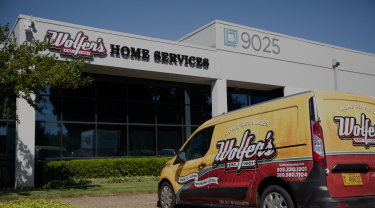Wolfer’s Home Services offers expert services for heating in Beaverton, OR. Whether you need quick furnace repairs or want to upgrade your old heat pump, we can help. Our technicians can handle all types of heating systems, no matter the brand.
Contact Wolfer’s Home Services for top-notch services for heating in Beaverton, OR.
Comprehensive Heating Services Beaverton
Wolfer’s Home Services is your go-to heating company. We’ll help you stay warm and comfortable all winter long. We service furnaces, heat pumps, and ductless mini-split systems. This ensures every customer receives the care they need. We do installations, replacements, repairs, and annual maintenance. We also offer same-day repair visits.
Our HVAC technicians will take a look at your home’s current heating system. We will suggest the best heating system for your needs. We offer both standard and high-efficiency systems so you can get the best one for your budget. We offer furnaces with varying fuel types, including electricity, oil, and gas. When you hire us for furnace installation, you’ll get the right-sized unit. It will work efficiently and keep your home warm.
- Heating repair
- Furnaces
- Furnace repair
- Furnace replacement
- Furnace maintenance
- Heat pumps
- Mini-split systems
Fast Heating Repair And Replacement
If your heating system breaks down, you need quick repair services. You never want your home to be cold. It can make your family uncomfortable and even put them in danger. Fortunately, we offer same-day emergency repair services so that you can get the help you need.
We also offer full system replacements for those homeowners who have aging systems. Our technicians can help you decide if it’s better to repair or replace your old system for the long run. We install many different heating systems. This includes furnaces, heat pumps, and ductless mini-split systems. We offer both standard and high-efficiency options so you can get the perfect fit for your unique needs.
Heating Services In Your Neighborhood
Located in Silicon Forest, Beaverton is a beautiful location situated just outside Portland. Even though winters are mild here compared to other places, a heating system is still needed. Our team can pair you with the perfect one to fit your home heating needs.
- Central Beaverton
- Five Oaks
- West Beaverton
- Triple Creek
- Raleigh West
Schedule Beaverton Heating Service Today
Wolfer’s Home Services is your go-to expert for heating services in the Beaverton area. Our NATE-certified technicians are licensed and insured, ensuring your peace of mind. We stand behind all our work with a 100% satisfaction guarantee. Our technicians are professional, clean, and always focus on safety in our work.
We offer financing upon approved credit for new system purchases. We’ve been proudly serving the community for over 125 years. We offer coupons for our products and services, which you can find on our website. We offer convenient online appointment scheduling and have many five-star online reviews. We’re proud to be a BBB-accredited business with an A+ rating. We’re a Lennox Premier Dealer and have received the Circle of Excellence award.
If you need services for heating in Beaverton, OR, then call Wolfer’s Home Services today!
Frequently Asked Questions
We get lots of questions from customers about our services. This includes furnace repair and heat pump installation. Below, we will answer some questions so you can be better informed about our HVAC company.
What Heating Services Do You Offer?
We are a full-service heating company. We offer all kinds of services for your home heating system. We do everything from system replacements to annual maintenance and prompt repair services. We aim to be your one-stop shop for all your home heating needs.
Do You Offer Emergency Heating?
You never plan for a heating emergency at your home. Fortunately, you can rely on us for same-day emergency repair services. We can repair all different types of heating systems, regardless of brand name or model.
How Often Is Heating Maintenance Needed?
Heating maintenance is an absolute necessity every year. It is best to schedule heating maintenance in early fall. This way, you can ensure your system runs efficiently before winter arrives. This is best to sustain the warranty coverage on your unit and ensure that it is operating safely.






